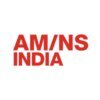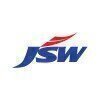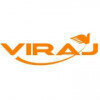Filter interviews by
Rashmi Group Interview Questions and Answers
29 Interview questions
Running a plant involves systematic operations, quality checks, and resource management to ensure efficiency and standards.
Establish a clear operational plan outlining daily tasks and responsibilities.
Implement regular quality control checks at various stages of production, e.g., testing concrete strength.
Utilize automated systems for monitoring production rates and adjusting processes as needed.
Conduct regular ma...
Yaskawa drives are advanced motion control solutions used in various industrial applications for precise motor control.
Yaskawa offers a range of drives including AC drives, servo drives, and motion controllers.
Their Sigma-7 servo drives provide high performance with advanced control algorithms.
Yaskawa's V1000 and A1000 series AC drives are known for energy efficiency and ease of integration.
They support various co...
BF slag is a byproduct of the iron-making process in a blast furnace, primarily composed of silicates and aluminosilicates.
Produced during the smelting of iron ore in a blast furnace.
Composed mainly of calcium silicate, aluminum silicate, and other compounds.
Used in cement production, road construction, and as a soil amendment.
Helps in removing impurities from molten iron, improving quality.
Can be recycled and uti...
Garbage collection in Java is the process of automatically reclaiming memory occupied by objects that are no longer in use.
Garbage collection is performed by the JVM to free up memory by removing objects that are no longer referenced by any part of the program.
It helps in preventing memory leaks and improving the performance of the application.
Java provides automatic garbage collection, so developers do not have t...
Characteristic strength is the maximum stress that a material can withstand before failure.
Characteristic strength is a measure of the maximum stress a material can handle.
It is often used in engineering to determine the safety factor of a material.
For example, the characteristic strength of steel is typically around 400 MPa.
Knocking is the unwanted sound produced in an internal combustion engine due to improper combustion of the air-fuel mixture.
Knocking occurs when the air-fuel mixture ignites spontaneously before the spark plug fires.
It can lead to engine damage if not addressed promptly.
Knocking can be caused by factors such as low octane fuel, incorrect ignition timing, or carbon deposits in the combustion chamber.
Carbon is a key element in steel, affecting its strength, hardness, and other properties.
Carbon content in steel typically ranges from 0.2% to 2.1%.
Higher carbon content results in harder and stronger steel.
Low carbon steel (0.05-0.30% carbon) is more ductile and easily weldable.
High carbon steel (0.60-2.0% carbon) is more brittle and used for cutting tools.
Carbon steel is widely used in construction, automotive, ...
Types of gears include spur, helical, bevel, worm, rack and pinion, and planetary gears.
Spur gears have straight teeth and are the most common type.
Helical gears have angled teeth for smoother operation.
Bevel gears have cone-shaped teeth and are used to change the direction of rotation.
Worm gears have a screw-like appearance and provide high gear reduction ratios.
Rack and pinion gears convert rotational motion int...
Stress-strain diagram shows the relationship between stress applied to a material and the resulting strain.
It is a graphical representation of how a material deforms under stress.
The diagram typically shows a linear elastic region, a yield point, plastic deformation, and ultimate failure.
The slope of the linear region is the material's Young's Modulus.
The area under the stress-strain curve represents the material'...
For every action, there is an equal and opposite reaction.
Newton's Third Law states that for every action, there is an equal and opposite reaction.
This means that whenever one object exerts a force on a second object, the second object exerts an equal and opposite force on the first object.
For example, when you push against a wall, the wall pushes back with an equal force in the opposite direction.
This law is fund...
Rashmi Group Interview Experiences
43 interviews found
(2 Questions)
- Q1. What is your name and address
- Ans.
My name is John Doe and I live at 123 Main Street, Anytown, USA.
Name: John Doe
Address: 123 Main Street, Anytown, USA
- Q2. If know anything about fashion and makeup
I applied via Recruitment Consulltant and was interviewed in Oct 2024. There was 1 interview round.
(3 Questions)
- Q1. All details about DRI600(Direct Reduced Iron Plant) Project with DRI project management and specialist team ,and HR
- Q2. Others technical matter about civil engineering Project. etc.
- Q3. Structural details about DRI Project
Interview Preparation Tips
Very easy it was for the final year students
Very easy to give the exam as everyone were cheating
(2 Questions)
- Q1. Fibonacci number were asked
- Q2. Travelling salesmen were asked
I appeared for an interview in May 2025, where I was asked the following questions.
- Q1. What is your highest qualification?
- Ans.
I hold a Chartered Accountant (CA) qualification, which I achieved after completing my CA exams and practical training.
Completed the CA course from a recognized institute, which included rigorous training in accounting, taxation, and auditing.
Passed all three levels of the CA exams: Foundation, Intermediate, and Final, demonstrating my proficiency in financial management.
Gained practical experience through articleship,...
- Q2. What is your level of confidence in your work?
- Ans.
I have a strong confidence in my work, backed by thorough preparation and a commitment to continuous improvement.
I consistently meet deadlines, demonstrating reliability in my work.
I seek feedback from peers and mentors to enhance my skills, like asking for input on my financial analysis reports.
I stay updated with industry standards and regulations, ensuring my work aligns with best practices.
I have successfully compl...
- Q3. What inspires you about your job?
- Ans.
I find inspiration in the impact of my work, the continuous learning opportunities, and the chance to help clients achieve their goals.
The ability to make a positive impact on clients' financial health, such as helping a small business secure funding.
Continuous learning through evolving regulations and standards, keeping my skills sharp and relevant.
The satisfaction of solving complex financial problems, like optimizin...
- Q4. What is your highest qualification
- Ans.
My highest qualification is a Chartered Accountant (CA), which I achieved after rigorous training and examinations in accounting and finance.
Completed the CA course from [Institute Name], which included extensive training in accounting, taxation, and auditing.
Passed all three levels of the CA exams: Foundation, Intermediate, and Final, demonstrating my proficiency in financial principles.
Gained practical experience thr...
- Q5. What is your level of confidence in your work
- Ans.
I have a strong confidence in my work, backed by thorough preparation, continuous learning, and a commitment to excellence.
I consistently meet deadlines, demonstrating reliability in my work.
I seek feedback from peers and mentors to improve my skills.
I have successfully completed projects that required attention to detail, such as audits and financial reports.
I stay updated with industry standards and regulations to en...
I applied via Campus Placement and was interviewed in Aug 2024. There were 3 interview rounds.
If basics are clear you can easily crack it
Strong knowledge of programming
(2 Questions)
- Q1. What is garbage collection in Java
- Ans.
Garbage collection in Java is the process of automatically reclaiming memory occupied by objects that are no longer in use.
Garbage collection is performed by the JVM to free up memory by removing objects that are no longer referenced by any part of the program.
It helps in preventing memory leaks and improving the performance of the application.
Java provides automatic garbage collection, so developers do not have to man...
- Q2. Why do you think you are fit for the company
- Ans.
I am fit for the company because of my strong technical skills, passion for learning, and ability to work well in a team.
I have a solid technical background with relevant education and experience.
I am eager to learn and adapt to new technologies and processes.
I have excellent communication and teamwork skills, which are essential for collaborating with colleagues and solving problems together.
Interview Preparation Tips
Skills evaluated in this interview
- Q1. What are the interlock and protection mechanisms associated with boilers and turbines?
- Q2. What is the working principle of vibration sensors and MPU (Microcontroller Processing Unit)?
- Q3. What is the working principle of a Resistance Temperature Detector (RTD)?
I applied via Naukri.com and was interviewed in Jun 2024. There were 2 interview rounds.
Technical TDS , economic , Accounts & GST questions
(3 Questions)
- Q1. TDS 192 , 192 A NEW REGIME
- Ans.
TDS 192 and 192A are new tax deduction rules introduced by the government.
TDS 192 pertains to salary income and requires employers to deduct tax at source before paying the salary to employees.
TDS 192A pertains to payment of accumulated balance due to an employee under EPF and requires deduction of tax at source.
These new rules aim to ensure timely deduction and payment of taxes by employers and reduce tax evasion.
Empl...
- Q2. MARGINAL COSTING
- Q3. TAX SLAB NEW & OLD SALARY DEDUCTION 80C 80TTA
Interview Preparation Tips
answer should be short & to the point
I appeared for an interview in Feb 2025, where I was asked the following questions.
- Q1. Power plant Project
- Q2. Refinery project
(5 Questions)
- Q1. Types of gears & explain brifly?
- Ans.
Types of gears include spur, helical, bevel, worm, rack and pinion, and planetary gears.
Spur gears have straight teeth and are the most common type.
Helical gears have angled teeth for smoother operation.
Bevel gears have cone-shaped teeth and are used to change the direction of rotation.
Worm gears have a screw-like appearance and provide high gear reduction ratios.
Rack and pinion gears convert rotational motion into lin...
- Q2. Thermodynamics laws?
- Ans.
Thermodynamics laws govern energy transfer and transformation in physical systems.
First Law of Thermodynamics: Energy cannot be created or destroyed, only transferred or converted.
Second Law of Thermodynamics: Entropy in a closed system will always increase over time.
Third Law of Thermodynamics: As temperature approaches absolute zero, the entropy of a system approaches a minimum value.
Examples: A car engine converting...
- Q3. Stress & strain diagram?
- Ans.
Stress-strain diagram shows the relationship between stress applied to a material and the resulting strain.
It is a graphical representation of how a material deforms under stress.
The diagram typically shows a linear elastic region, a yield point, plastic deformation, and ultimate failure.
The slope of the linear region is the material's Young's Modulus.
The area under the stress-strain curve represents the material's tou...
- Q4. What is knocking?
- Ans.
Knocking is the unwanted sound produced in an internal combustion engine due to improper combustion of the air-fuel mixture.
Knocking occurs when the air-fuel mixture ignites spontaneously before the spark plug fires.
It can lead to engine damage if not addressed promptly.
Knocking can be caused by factors such as low octane fuel, incorrect ignition timing, or carbon deposits in the combustion chamber.
- Q5. Carbon contains of steel?
- Ans.
Carbon is a key element in steel, affecting its strength, hardness, and other properties.
Carbon content in steel typically ranges from 0.2% to 2.1%.
Higher carbon content results in harder and stronger steel.
Low carbon steel (0.05-0.30% carbon) is more ductile and easily weldable.
High carbon steel (0.60-2.0% carbon) is more brittle and used for cutting tools.
Carbon steel is widely used in construction, automotive, and m...
It is very good exam and easy topics
(1 Question)
- Q1. What is charaterstic strength
- Ans.
Characteristic strength is the maximum stress that a material can withstand before failure.
Characteristic strength is a measure of the maximum stress a material can handle.
It is often used in engineering to determine the safety factor of a material.
For example, the characteristic strength of steel is typically around 400 MPa.
Top trending discussions






Rashmi Group Interview FAQs
The duration of Rashmi Group interview process can vary, but typically it takes about less than 2 weeks to complete.
Tell us how to improve this page.
Rashmi Group Interviews By Designations
- Rashmi Group Senior Engineer Interview Questions
- Rashmi Group Assistant Manager Interview Questions
- Rashmi Group Purchase Engineer Interview Questions
- Rashmi Group Assistant Engineer Interview Questions
- Rashmi Group Project Manager Interview Questions
- Rashmi Group Electrical Engineer Interview Questions
- Rashmi Group Graduate Engineer Interview Questions
- Rashmi Group Graduate Trainee Interview Questions
- Show more
Interview Questions for Popular Designations
- Team Lead Interview Questions
- Software Engineer Interview Questions
- Intern Interview Questions
- Business Analyst Interview Questions
- Sales Executive Interview Questions
- Associate Software Engineer Interview Questions
- Accountant Interview Questions
- Senior Software Engineer Interview Questions
- Show more
Overall Interview Experience Rating
based on 59 interview experiences
Difficulty level
Duration
Interview Questions from Similar Companies
Rashmi Group Reviews and Ratings
based on 634 reviews
Rating in categories
12-15 Yrs
Not Disclosed
14-19 Yrs
Not Disclosed
|
Assistant Engineer
181
salaries
| ₹1.7 L/yr - ₹5 L/yr |
|
Senior Engineer
143
salaries
| ₹3.2 L/yr - ₹7.5 L/yr |
|
Engineer
119
salaries
| ₹2.2 L/yr - ₹6.8 L/yr |
|
Assistant Manager
100
salaries
| ₹4.8 L/yr - ₹10 L/yr |
|
Junior Engineer
84
salaries
| ₹1.4 L/yr - ₹4.1 L/yr |

Tata Steel

JSW Steel

Jindal Steel and Power

ArcelorMittal Nippon Steel
- Home >
- Interviews >
- Rashmi Group Interview Questions













